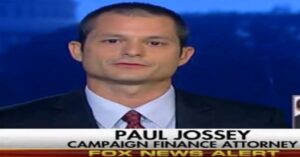The Securities and Exchange Commission’s (SEC) commissioners testified last week to the House Financial Services Committee. The otherwise nondescript 3.5-hour confab briefly surveyed the crowdfunding and crypto landscape. But Congress missed a huge chance to examine the commission’s scattershot guidance and arbitrary enforcement. Its desultory policymaking hinders the economy and harms those it seeks to help.
This hearing followed one on the supposed menace of private capital markets. But unlike there, Commissioners provided balanced testimony. And only Robert J. Jackson Jr.—who (*eye roll*) holds five Ivy League degrees—promoted extreme anti-capitalist views.

SEC progress on Reg CF crowdfunding could rescue drowning exemption
The hearing began well with Patrick McHenry (R-NC) chastising Reg CF’s shackling.
McHenry: One exemption that warrants modernization is the crowdfunding exemption. My original crowdfunding bill which was included in the JOBS Act was only a few pages long, 11 pages in fact. I appreciate the SEC and their hardworking staff creating 685 pages worth of regulations around those 11 pages. The absurdity of this I have pointed out a number of times since then. So, you’ve given me at least the rhetorical value of talking about the burden of SEC regulation of making an exemption and a public law completely meaningless because of the impact of the costs.
As the bill’s sponsor, however, his concern proved sadly unique as the hearing wandered about. Everyone knows Reg CF’s shortcomings. And the commission seems finally to be acting.
Chairman Shallow-End Jay Clayton: You can get up to a million-dollar company going with Reg Crowdfunding and some of our other exemptions. It’s really hard to grow a business from say a $1M business to a $50M business . . . if there are things that we can do to facilitate capital formation in that gap so our small businesses can become larger I think that’s an area we should focus on.
The SEC recently sought public comment on reconciling and improving the private exemptions. Commenters sent many good ideas. Long awaited action is hopefully afoot.

SEC token and crypto guidance remains woeful
Less promising is token-sale progress. The SEC seems no closer to solving the crypto riddle than during the ICO craze, with one exception.
Congressman McHenry mentioned the Blockstack Reg A+ token sale and several are irked by Mark Zuckerberg’s corporate crypto scheme. But commissioners couldn’t remove crypto uncertainty. Commissioner Hester Peirce, aka Crypto Mom stated such when discussing utility tokens and policy-by-enforcement that only seems to bother her.
Crypto Mom: I would like to see us be a little more forward thinking in ways that we might accommodate unique aspects of digital assets. For example, digital assets that are utility tokens I don’t know that the securities laws framework that we have right now is the appropriate framework for them and so I’d like for us to think about creating some kind of safe harbor.
Crypto Mom: But enforcement is a poor way to announce policy. We need to be clear in writing our rules and we need to make sure we provide the guidance that firms and individual need as necessary. We understand that our rule book is complicated, and we work with well-intentioned firms and individuals to help them comply with our rules.
The SEC’s April Digital Asset “guidance”: dazed and confused
This wantonness colored the hearing’s best exchange when Ted Budd (R-NC) mocked the SEC’s now-infamous token ‘guidance,’ which has become a poster child for bureaucratic drivel.
Budd: In April Fin Hub published a framework for investment contract analysis of digital assets which included 60 plus factors for determining whether or not the SEC would consider a digital asset a security. In a statement released alongside your framework your colleagues Bill Hinman and Valerie Szczepanik indicated that the framework is not intended to be an exhaustive overview of the law. But rather an analytical tool to help market participants . . . [H]as the guidance helped resolve their most important questions?
Crypto Mom: [No]
Budd: So last question, when can market participants expect and exhaustive overview of the law so that they can get the regulatory certainty required to continue to innovate and create American jobs.
The SEC plagues entrepreneurs with ambiguous and arbitrary enforcement
The Commission’s name brand, massive budget, and economic power incentives risk-averse, snails-pace progress on issues that won’t wait.
Indeed, the SEC abstains from the only recent securities success: Reg D. Onerous rules knifed Reg CF and Reg A+. And rules encourage companies to stay private rather than face the many IPO burdens.
All the while, former SEC staff and commissioners get massive paydays to interpret and cajole because no one can discern motives behind mountains of disclaimers and subpoenas. Staffers justify this as needed “flexibility.” As NPC Valerie Szczepanik noted, “The lack of bright-line rules allows regulators to be more flexible.”
Just so, as these pages have stated:
This is true but has other effects. It leaves regulators with massive discretion. And it gives them enormous power over the economy with no responsibility for the results. It mandates entrepreneurs approach them hat-in-hand for permission. And it makes them sought after speakers on the conference circuit.
But it’s a zero-sum game. Every unit of power Ms. Szczepanik reserves for herself and her colleagues removes it from job producers. Indeed, every ambiguous pronouncement shunts billable hours to lawyers and compliance professionals instead of research or marketing. Those building tomorrow’s economy need the flexibility not bureaucrats. They will power our future long after Ms. Szczepanik takes her professorship or retires to a nonprofit.
Congress missed a chance to examine the SEC’s misguided de facto policymaking
Entrepreneurs facing intense market pressures need flexibility. Warren Davidson’s (R-OH) soliloquy struck the matter and is worth fully quoting:
Davidson: Recently director of corporation and finance Bill Hinman stated in a fireside chat that the SEC prefers an approach to digital assets through facts and circumstances rather than a bright line test. This company by company approach prevents regulatory clarity and it suffers from some of the charm and inefficiency of third world power structures. For this reason, although innovators are in America and innovation is still occurring in America capital is fleeing. Not to avoid our regulations to find efficient regulatory clarity. And they’re finding it elsewhere. We need a simple set of rules that apply equally and clearly to all. That is the premise of a bill I know you won’t talk about. But the framework that the market needs. Where is the capital going? Places like Singapore, the UK, Switzerland, have laid out clear frameworks for digital assets.
Meanwhile the US hundreds of companies await No Action Letters, with only two having been issued thus far by the SEC. Now I agree with you that the ICO situation represents bad outcomes, but the root issue remains. America does not have a clear regulatory framework. Consumer and investors are harmed by that status quo in fact Commissioner Peirce nailed the explanation, the SEC should not only be concerned about fraud but also about opportunity. Our failure to provide regulatory clarity fails Americans on both counts. We have become the world’s land of opportunity the best destination for goods, services, capital, intellectual property and more by anarchy or by inaction. With respect for digital assets it’s time for deeds not words.
Yet instead of forcing Shallow-End Jay’s hand, Davidson sought Crypto Mom who, of course, agreed.
The problem is the SEC’s results not intentions
The SEC undoubtedly tries.

But too often we get years-long dithering before eye-rolling guidance or subpoena floods. And people never subject to market forces live comfortable lives in prestige whilst hindering tomorrow’s economy.







